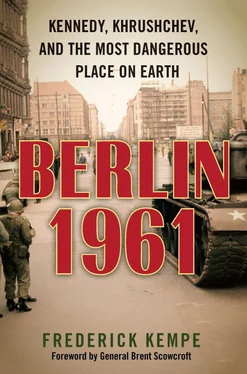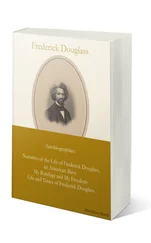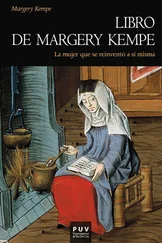“As time passes and the political geography of world power mutates, it is easy to forget the most fraught and dangerous crisis of the Cold War, which brought U.S. and Soviet tanks facing each other at close range. Berlin 1961 is a gripping, well-researched, and thought-provoking book with many lessons for today.”
—Dr. Henry Kissinger
“Frederick Kempe’s compelling narrative, astute analysis, and meticulous research bring fresh insight into a crucial and perilous episode of the Cold War, bringing Kennedy and Khrushchev to life as they square off at the brink of nuclear war. His masterly telling of a scary and cautionary tale from half a century ago has the immediacy of today’s headlines.”
—Strobe Talbott, president, Brookings Institution
“History at its best. Kempe’s book masterfully dissects the Cold War’s strategically most significant East–West confrontation, and in the process significantly enlightens our understanding of the complexity of the Cold War itself.”
—Dr. Zbigniew Brzezinski, national security advisor to President Jimmy Carter
“What an amazing drama this is! The showdown over Berlin in 1961 was the pivotal episode of the Cold War, far more important and illuminating than the Cuban Missile Crisis. It was a clash between two fascinating leaders, Kennedy and Khrushchev, whose misreading of each other holds lessons for today. Kempe’s compelling narrative is a triumph of great writing and research.”
—Walter Isaacson, president and CEO, The Aspen Institute, and author of
Einstein: His Life and Universe and
Benjamin Franklin: An American Life
“An engaging, richly researched, thought-provoking book that captures the drama of, and challenges the conventional wisdom regarding, one of the Cold War’s most decisive years. Frederick Kempe combines the ‘You are there’ storytelling skills of a journalist, the analytical skills of the political scientist, and the historian’s use of declassified U.S., Soviet, and German documents to provide unique insight into the forces and individuals behind these events.”
—General Brent Scowcroft, national security advisor to Presidents Gerald Ford and George H. W. Bush
“Fred Kempe has masterfully captured the dramatic dimensions of a great story that shaped the world order for twenty-eight years. Berlin 1961 is an important achievement.”
—Chuck Hagel, distinguished professor, Georgetown University, and U.S. senator, 1997–2009
“ Berlin 1961 takes us to Ground Zero of the Cold War. Reading these pages, you feel as if you are standing at Checkpoint Charlie, amid the brutal tension of a divided Berlin.”
—David Ignatius, columnist,
The Washington Post
“Informed… His chronology of memos and meetings dramatizes events behind closed doors…. Kempe’s history reflects balanced discernment about the creation of the Berlin Wall.”
—
Booklist
“Kempe… skillfully weaves oral histories and newly declassified documents into a sweeping, exhaustive narrative…. Likely the best, most richly detailed account of the subject, this will engross serious readers of Cold War history who enjoyed W. R. Smyser’s Kennedy and the Berlin Wall but appreciate the further detail.”
—
Library Journal
“Good journalistic history in the tradition of William L. Shirer and Barbara Tuchman.”
—
Kirkus Reviews
“A significant contribution to our understanding of the Cold War. It also will enhance public appreciation of the role of diplomats and diplomacy, because Berlin 1961 is as eminently readable as any good ‘who done it.’”
—
American Diplomacy
“An engaging study of the 1961 Khrushchev/Kennedy standoff over Berlin, presenting the drama in the journalistic, anecdotal, episode-by-episode mode…a readable narrative.”
—
The Weekly Standard

THE BERKLEY PUBLISHING GROUP
Published by the Penguin Group
Penguin Group (USA) Inc.
375 Hudson Street, New York, New York 10014, USA
Penguin Group (Canada), 90 Eglinton Avenue East, Suite 700, Toronto, Ontario M4P 2Y3, Canada (a division of Pearson Penguin Canada Inc.)
Penguin Books Ltd., 80 Strand, London WC2R 0RL, England
Penguin Group Ireland, 25 St. Stephen’s Green, Dublin 2, Ireland (a division of Penguin Books Ltd.)
Penguin Group (Australia), 250 Camberwell Road, Camberwell, Victoria 3124, Australia (a division of Pearson Australia Group Pty. Ltd.)
Penguin Books India Pvt. Ltd., 11 Community Centre, Panchsheel Park, New Delhi—110 017, India
Penguin Group (NZ), 67 Apollo Drive, Rosedale, Auckland 0632, New Zealand (a division of Pearson New Zealand Ltd.)
Penguin Books (South Africa) (Pty.) Ltd., 24 Sturdee Avenue, Rosebank, Johannesburg 2196, South Africa
Penguin Books Ltd., Registered Offices: 80 Strand, London WC2R 0RL, England
Copyright © 2011 by Frederick Kempe.
Interior map copyright © 2011 by Jeffrey L. Ward.
Front cover photograph copyright © by Jung-ullstein bild / The Granger Collection.
All rights reserved.
No part of this book may be reproduced, scanned, or distributed in any printed or electronic form without permission. Please do not participate in or encourage piracy of copyrighted materials in violation of the author’s rights. Purchase only authorized editions.
BERKLEY ®is a registered trademark of Penguin Group (USA) Inc.
The “B” design is a trademark of Penguin Group (USA) Inc.
The Library of Congress has cataloged the G. P. Putnam’s Sons hardcover as follows:
Kempe, Frederick.
Berlin 1961: Kennedy, Khrushchev, and the most dangerous place on earth / Frederick Kempe.
p. cm.
Includes bibliographical references and index.
ISBN: 978-1-101-51502-0
1. Kennedy, John F. (John Fitzgerald), 1917–1963. 2. Berlin (Germany)—Politics and government—1945–1990. 3. Berlin Wall, Berlin, Germany, 1961–1989. 4. United States—Foreign relations—Soviet Union. 5. Soviet Union—Foreign relations—United States. I. Title.
E841.K34 2011 2010033163
943’.1550875—dc22
In the 1990s, Peng would come to be considered one of “the Eight Immortals of the Chinese Communist Party.”
Powers was not released until more than a year later, on February 10, 1962, when he was exchanged on Glienicke Bridge in West Berlin for Colonel Rudolf Abel—the alias for the captured legendary Russian spy William Fischer, whose exploits were such that his face would later appear on a Soviet postage stamp.
It would be renamed Karl-Marx-Allee that November.
Dr. Jacobson would lose his medical license in 1975. Another patient of his, Kennedy friend Mark Shaw, died at the young age of forty-seven in 1969 as a result of “acute and chronic intravenous amphetamine poisoning.”
Thurow himself escaped to the West on February 21, 1962. As a deserter he thereafter was hounded by State Security; he evaded one confirmed order to murder him and at least one effort to kidnap him.
Schumann later settled in Bavaria in West Germany, where he met his wife. After the fall of the Berlin Wall, he said, “Only since 9 November 1989 [the date of the fall] have I felt truly free.” Still, he continued to suffer tensions with former colleagues and family in Saxony. On June 20, 1998, suffering from depression, he committed suicide, hanging himself in an orchard.
Читать дальше












